“NNPP Declares Kwankwaso No Longer a Member, Distances Party from Kwankwasiyya Movement” The National Chairman of the New Nigeria Peoples Party (NNPP), Agbo Gilbert Major, has formally stated that former party figurehead and leader of the Kwankwasiyya movement, Senator Rabiu Musa Kwankwaso, is no longer affiliated with the NNPP. Speaking on Trust TV’s Daily Politics,
“NNPP Declares Kwankwaso No Longer a Member, Distances Party from Kwankwasiyya Movement”

The National Chairman of the New Nigeria Peoples Party (NNPP), Agbo Gilbert Major, has formally stated that former party figurehead and leader of the Kwankwasiyya movement, Senator Rabiu Musa Kwankwaso, is no longer affiliated with the NNPP. Speaking on Trust TV’s Daily Politics, Major clarified that Kwankwaso had ceased to be a member of the party since mid-2023.
Making his position unmistakably clear, Major said, “There are more important issues to address than to talk about Kwankwaso. He is part of NNPP’s past. He joined at a time, and he left—along with his Kwankwasiyya movement. I don’t want to keep revisiting that chapter.”
He emphasized that Kwankwaso’s departure is supported not only by the party’s internal constitution but also by judicial decisions, including judgments from the Abia State High Court and a recent ruling by the FCT High Court. These legal pronouncements, according to Major, have effectively severed Kwankwaso’s formal ties to the NNPP.
Basiru Challenges PDP’s Viability, Advised To Reassess Its Political Strength
Party Losses Tied to Kwankwasiyya Fatigue
Speaking on the exit of several key politicians from the party, Major linked their departure to dissatisfaction with the structure and leadership style of the Kwankwasiyya movement, rather than any discontent with the NNPP itself.
He explained, “Kwankwaso brought in his loyalists—the Kwankwasiyya group—and many of them were pivotal to the NNPP’s success, especially in Kano. But now, some of those same people are walking away, not from NNPP, but from the grip of a movement they feel has become increasingly autocratic.”
Highlighting the profiles of those who left, he noted that these were not fringe members but seasoned, decisive politicians. According to him, their exit signals a rejection of Kwankwasiyya’s dominance rather than a rebellion against the party platform.
“They didn’t abandon NNPP,” Major stressed. “We remain in contact with them. They continue to affirm their loyalty to the party’s ideals and leadership. What they reject is the centralization and internal dysfunction within the Kwankwasiyya movement, which they believe no longer represents their vision.”
Clarifying the Nature of the Defections
Major sought to reframe public perception of the defections from NNPP. While acknowledging the loss of high-ranking politicians, including a senator and two House of Representatives members, he insisted that the essence of the party remains intact.
“These departures are not a political mutiny against NNPP,” he stated. “These individuals reached a point where they could no longer endure the internal politics of the Kwankwasiyya camp. They felt stifled, sidelined, and unheard.”
According to Major, this sentiment reflects a deeper issue within the Kwankwasiyya group—an apparent lack of inclusiveness and collaborative leadership.
“This is the beauty of democracy,” he noted. “If you’re no longer comfortable with the vessel that brought you into a political space, you have every right to walk away. The fact remains that these members won their seats under the NNPP umbrella, and while it might look on the surface like they’ve left the party, they have simply distanced themselves from Kwankwasiyya.”
No Concern Over Kwankwaso’s Political Moves
When asked whether he was concerned about Kwankwaso’s ongoing political engagements or any possible affiliation with the presidency, Major dismissed the notion entirely.
“Why would I be concerned about someone who hasn’t been a member of my party for over a year?” he responded. “He’s moved on, and so have we. Let’s not waste time discussing someone who no longer has any bearing on the affairs of our party.”
He concluded by reiterating that the NNPP’s future lies beyond Kwankwaso, and that the party’s leadership is now focused on strengthening its operational capacity and building a more inclusive and democratic structure.
“The NNPP is charting a new course. Our priority is to foster unity, restore internal democracy, and build an enduring political institution that can deliver real change to Nigerians. We respect those who left, we remain friends, but our focus is firmly forward.”


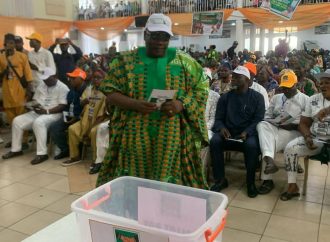
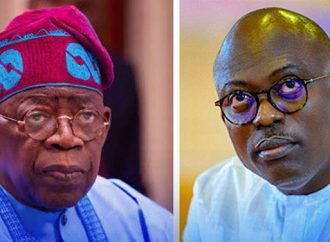
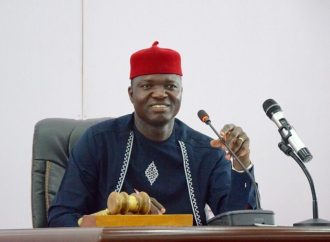
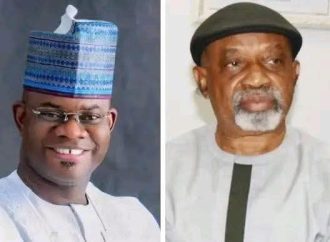
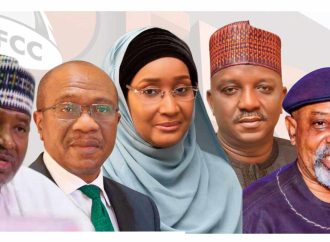
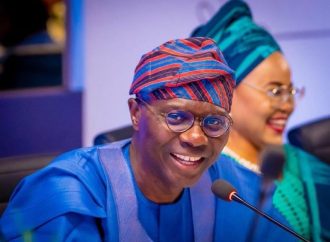


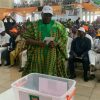
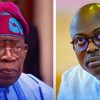
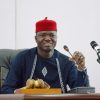
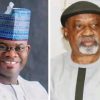
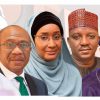



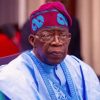


Leave a Comment
Your email address will not be published. Required fields are marked with *